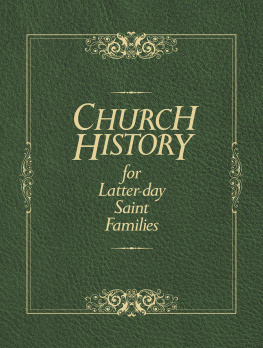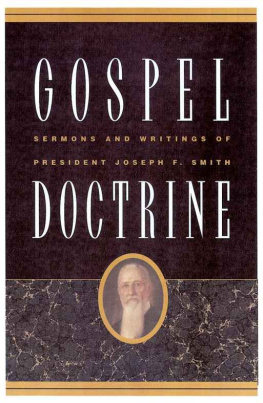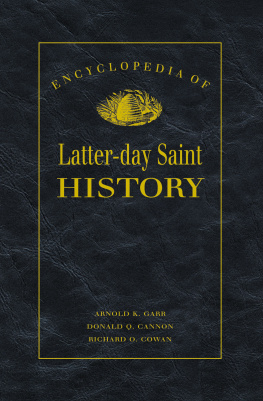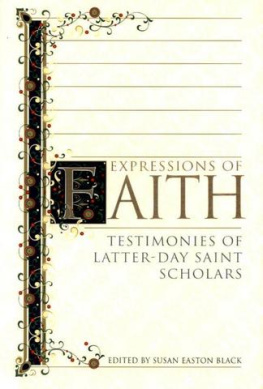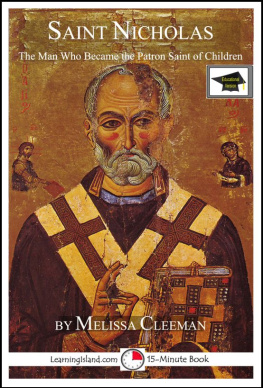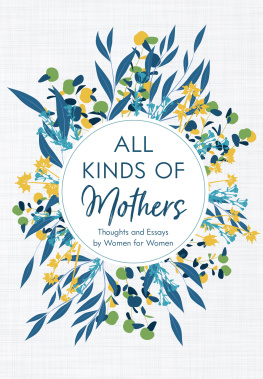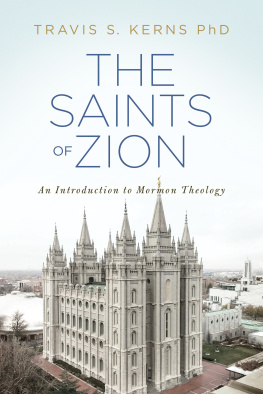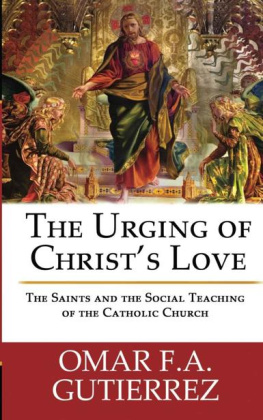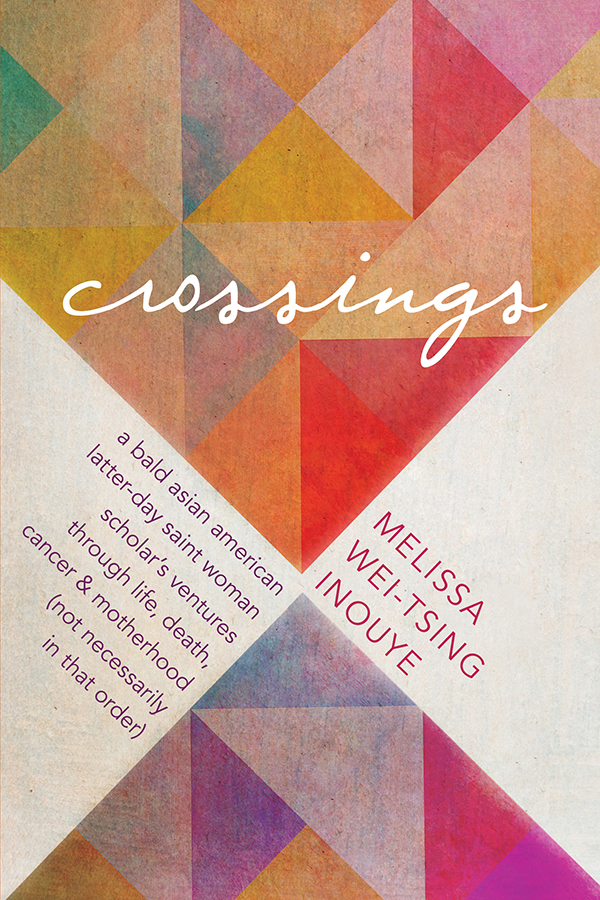Introduction
Dear Reader,
Ive always been fuzzy about deadlines, but in May 2017, when I was diagnosed with colon cancer, everything snapped into focus: Oh shoot! Im going to die! Suddenly, thinking about the Ultimate Question of Life, the Universe, and Everything seemed terribly urgent. I have occasionally written letters to my children and saved them in a filing cabinet for them to read when theyre older. But when one contemplates the possibility of being entirely absent, a few letters do not seem like enough. This is why I began to think about writing a book: a literary form of food storage, a cache of meaningful communication, a stash of thought and memory that would outlast the board books, meltdowns, and fidgeting. Many months after my diagnosis, and on the other end of treatment, I have a more placid view of the future (including death, which is after all in everyones future). Im not out of the woods forever, but Im not imminently dead. And, I now have a book!
My life hasnt been very long, but its been extensiveas far as physical and cultural journeys are concerned. I am used to the feeling of being out of place. I was born in the United States to a Chinese American mother and Japanese American father but have spent the majority of my adult life in other places, including Taiwan, China, Japan, Hong Kong, and now New Zealand. I grew up on the West Coast, in laid-back southern California, but received my academic training on the East Coast, at Harvard University, among people who took themselves very seriously. In my professional life, I am a feminist scholar who researches Chinese history and global Christianity and rejects claims not supported by evidence. In my personal life, Im a Latter-day Saint mom and Primary pianist who teaches her children to believe in miracles. In the United States and New Zealand, Im identifiable on sight as a member of an Asian ethnic minority; in Asia, Im an American expat who looks like most people on the street but thinks and acts in a foreign way. Im bald, so I blend in with many bishoprics, Ive been poor among the rich and rich among the poor. Wherever I go, it seems, I dont quite fit in, which is why I feel equally at home everywhere.
The writings in this book attempt to capture a Latter-day Saint life in its many possible iterations: as a child, parent, friend, disciple, and scholar in a variety of times and places. Ones faith is present in the ways one encounters foreign cultures, reflects on the year, teaches students, addresses children, and responds to a life-threatening illness. I am not a Latter-day Saint only on Sunday morning, but in everything I do and in relation to everyone I meetstrangers, students, children, oncologists. A faith tradition is not simply a collection of doctrines, but a distinctive way of engaging with the world and its people. Latter-day Saints exceptionally long view of relationships creates a series of persistent entanglements, the peopled warp across which we must learn to weave our lives.
I suppose one of the reasons I am writing about my life is because I am aware that many people, including young people and perhaps, someday, my children, may at times wonder whether this is the sort of life for them. I am also aware that friends and family members of different religious or philosophical persuasions may sometimes wonder why on earth I have chosen to throw in my lot with the Mormons. I cant prescribe a life for anybody, but what I can do is share how I have found the fruits of this life to be worthwhilecostly, to be sure, but also rich and nourishing, a source of deep joy.
At times, we Latter-day Saints may feel that we are on the margins, variously defined, such as when our family situation does not fit the perfect family mold, or when we have felt like the only person with deep reservations among a sea of unqualified enthusiasm, or when we have felt the sting of discrimination because of gender, race, class, sexual orientation, nationality, and so on. At other times, we Latter-day Saints may believe that sisters and brothers who are feeling out of place may be indulging in self-pity, choosing to be offended, being unrighteous, or acting prideful and entitled. We may wonder why people who are on the edge cant just get with the program or get over themselves. Yet all of us should remember that marginality is the purpose of Gods plan of salvation. We are all aliens, exiles, sojourners far from our spiritual home. The purpose of life is to come to terms with the depth of this alienation in ourselves and in others and respond with charityto seek, receive, and share the pure love of Christ so that we may be one amidst our differences.
Because we all inhabit multiple dimensions, physical and social, with multiple centers, we are all marginal in one way or another. People at the so-called margins have a unique and valuable perspective on the so-called center. In the scriptures, prophets and prophetesses often come from the wilderness, foreign lands, or those classes of people whose connections with mainstream sociality have been severedthe John the Baptists, the Samuel the Lamanites, the Annas in the temple. Im not blind to the fact that current church structures have yet to tap into the potential power of integrating the marginal center and the central margins. The real harm resulting from faulty institutional processes is deeply frustrating. I wont stop working to fix this. I get so tired, all the time. But I have deep faith in our collective potential to turn weaknesses into strengths.
Fix-it work isnt very glamorous, but it is the work of prophets, disciples, and Christ himself. The prophet Isaiah described people who have received spiritual strength as people who will make great construction workersbuilders, repairers of the breach, restorers of paths to dwell in (see Isaiah 58:12). These images of filling in gaps and fixing walkways help me understand that the work of the gospel is to connect or reconnect people with each other. Often we come to the edge of vast divides that separate us from our fellow beings. But the discomfort we feel at the margins provokes growth and empathy. Christ suffered all things, many of them alien to his previous lived experience, in order to develop the capacity to heal others in their suffering. Having been a stranger, one is prepared to recognize other strangers and take them in. It turns out that all of us can and should find ourselves, and Christ, at the margins.
This theme of being strangers runs throughout my familys recent history. My ancestors on my mothers side were farmers in southern China. On my fathers side, my ancestors were samurai, merchants, and farmers in southern Japan. In the early twentieth century, both my Chinese and Japanese ancestors made long migratory crossings that were very consequential for my family and me today. Their journeys across the Pacific determined the places we grew up, the language we spoke, and the people among whom we felt at home. My parents were raised as third-generation Asian Americans in places like Huntington Beach, California, and Sigurd, Utah. They grew up speaking only English and listening to the Beach Boys. I didnt learn Chinese and Japanese until I was at university and in graduate school. These new languages, and the opportunities they offered, drew me westward across the Pacific. I have visited my Chinese familys ancestral village outside of Kaiping, Guangdong, and my Japanese familys nashi pear farm in Inaibaru, Fukuoka. I have burned incense at my Chinese great-great-grandfathers grave in a cemetery in Hong Kongs New Territories. I walk in the paths my ancestors walked and wonder that I have become so foreign to them. And yet, it was they who first traveled across the ocean, leaving friends and family behind.


